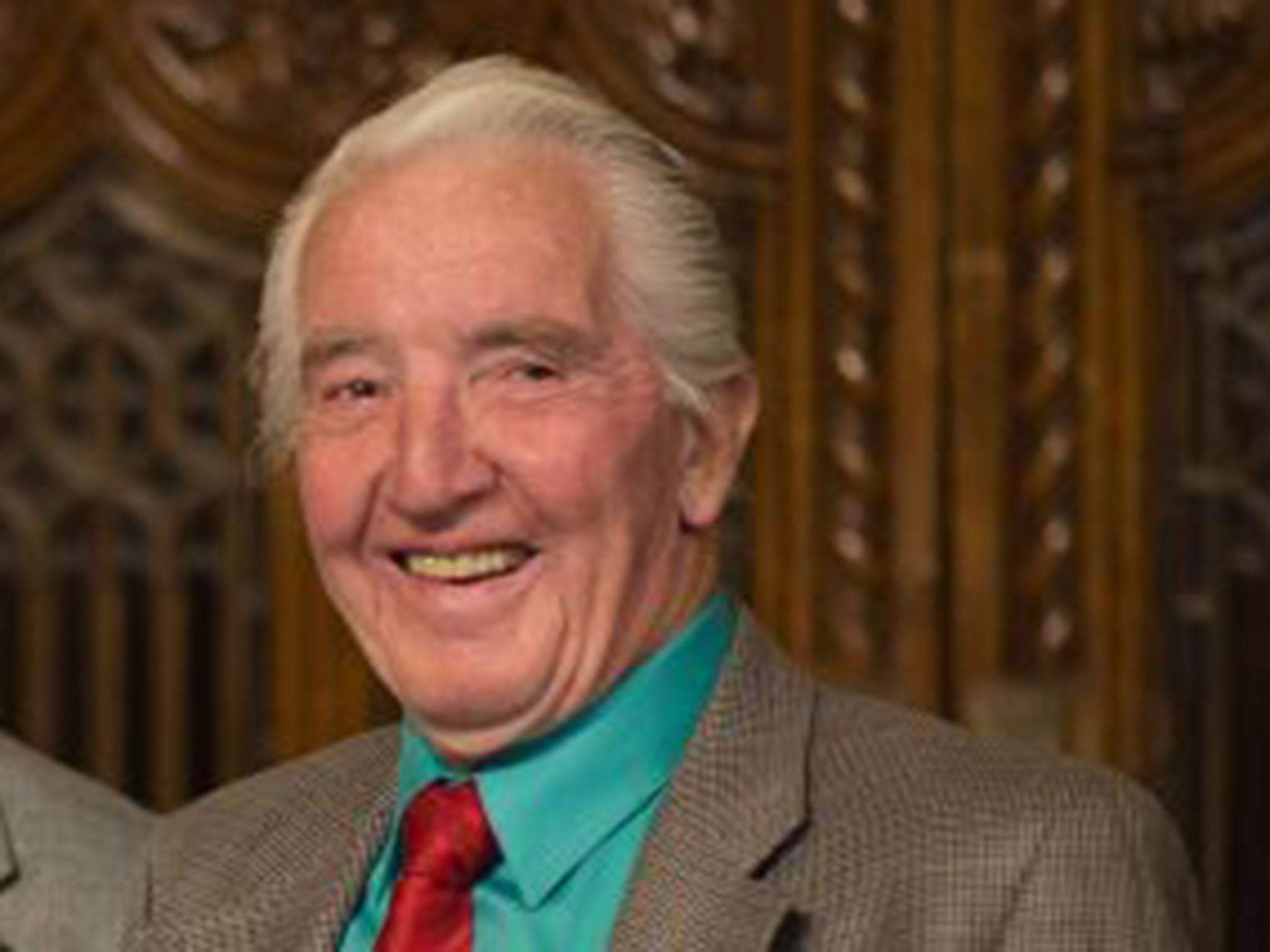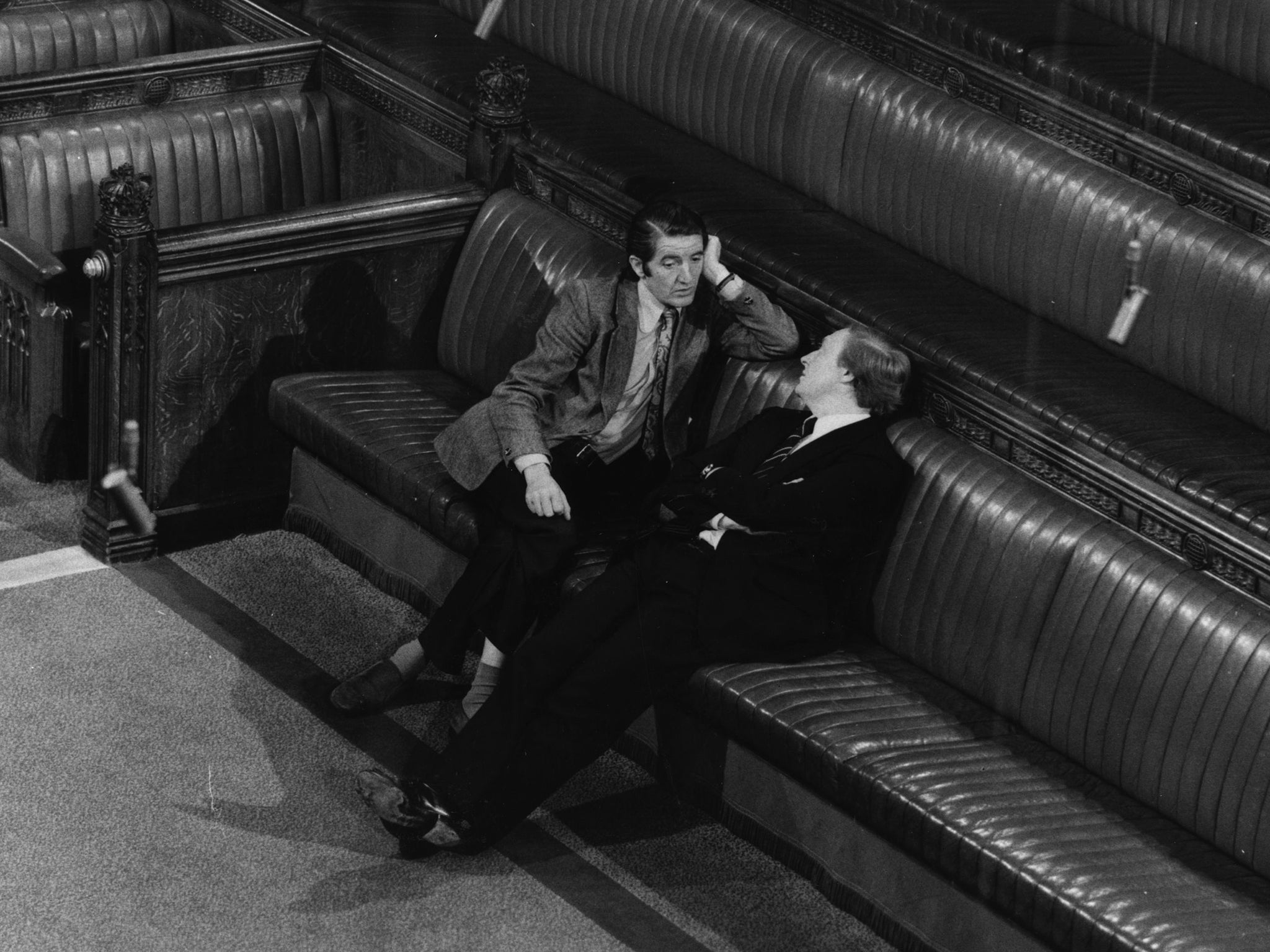Dennis Skinner: How the Beast of Bolsover won battle of Commons benches with invading Scottish Nationalists
It all began when 56 SNP MPs arrived in Westminster intent on making the point that they are now the third biggest party in the Commons

Your support helps us to tell the story
From reproductive rights to climate change to Big Tech, The Independent is on the ground when the story is developing. Whether it's investigating the financials of Elon Musk's pro-Trump PAC or producing our latest documentary, 'The A Word', which shines a light on the American women fighting for reproductive rights, we know how important it is to parse out the facts from the messaging.
At such a critical moment in US history, we need reporters on the ground. Your donation allows us to keep sending journalists to speak to both sides of the story.
The Independent is trusted by Americans across the entire political spectrum. And unlike many other quality news outlets, we choose not to lock Americans out of our reporting and analysis with paywalls. We believe quality journalism should be available to everyone, paid for by those who can afford it.
Your support makes all the difference.Dennis Skinner claims to have won his bench war with the SNP. The Scots tried to prise him from his favourite Commons perch, on the opposition front bench alongside the central aisle, but they have not managed it yet and, he says, they know they never will.
It all began when 56 SNP MPs arrived in Westminster intent on making the point that they are now the third biggest party in the Commons. They decided they would occupy the whole of the lower half of the front bench.
Before Parliament had officially met, they had a rota of MPs who parked themselves on the bench to prevent others sitting there. But they did not reckon on Skinner’s single-minded determination to keep the place he has occupied for decades.
On that first day, the Labour MP for Bolsover simply pushed his way in by perching on a tiny space at the end of the bench. Since then, he has been out of bed early, so that when the door of the debating chamber is unlocked at 8am, he is there waiting, armed with what is known as a “prayer card”, with his name on it.
As soon as the doors are open, he marches in and puts the prayer card in the slot at the end of the disputed front bench. Under Commons rules, the seat is then his for the rest of the day.

“It’s more-or-less clear that they’ll not contest me being there,” Skinner said.
In his opinion, they would be wise to accept defeat and let their leader, Angus Robertson, do what successive Liberal Democrat leaders did and occupy the place on the second row directly behind Skinner instead of sharing the front bench with members of Labour’s awkward squad.
“During the Queen’s Speech there was me, Ronnie Campbell, Ian Lavery and Ian Mearns,” said Skinner. “Their leader spoke from the middle of the bench. From the point of view of the TV, I think it’s better situated further back. That second or third bench is ideal. Anyway, it’s up to them. I’m pretty sure they aren’t going to be there at eight o’clock, when the doors open, so they can’t get my seat.”
This dispute is blamed for the unusual silence during the part of the Queen’s Speech ceremony when Black Rod appeared in the Commons to summon MPs to the Lords to hear the Queen. Normally, he is the butt of some caustic comment from Skinner. This time there was silence. Why?
“You sometimes have other fish to fry,” Skinner said, before going on to explain that barracking Black Rod requires having a short, sharp quip at the ready, and precise timing. “You’ve only got three seconds when Black Rod turns to the microphone, so it’s got to be three or four words to be effective. There are some issues that you can’t say in that few words. I wanted to shout out ‘He looks more like John Major each day’ because of all this running around Europe David Cameron is doing, but I couldn’t have got that many words in.
“It’s got to be topical really. When the Queen had a bad back, I read that she might not be there. She was, but I shouted ‘Have you got Helen Mirren on standby?’
“The longest I ever did was when they were privatising Royal Mail. I said ‘Royal Mail for sale – Queen’s head privatised.’ I said it very fast, but people did hear it.”
This ritual has been enacted since before half the present contingent of MPs were born. When Skinner, who is now aged 83, first arrived in the Commons in 1970, he noted the front bench below the aisle was a favourite hangout for a rebellious group of left-wing MPs, mostly from working- class backgrounds with constituencies north of Watford. He soon made himself the star of that show.
He has only been ousted form his favoured seat once, for a short period in 1981, after David Owen left the Labour Party to form the short-lived SDP. Owen assigned a staff member to be at the front of the 8am queue, so that he could requisition Skinner’s seat.
There were furious points of order raised with the Speaker, who agreed that it was against the rules.
“That’s why David Owen had to give up the idea,” Skinner said. “He was sending in someone who wasn’t even an MP. Then what finally did it was that he pushed past (the Labour MP) Clare Short. Clare nearly fell. That was the very end. It only lasted a few days, then I got my seat back.”
And he is not giving it up for anyone.
Join our commenting forum
Join thought-provoking conversations, follow other Independent readers and see their replies
Comments